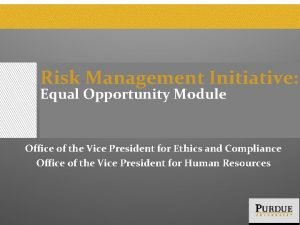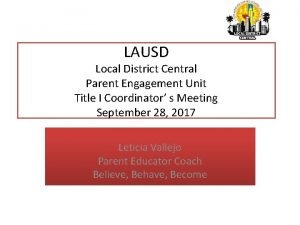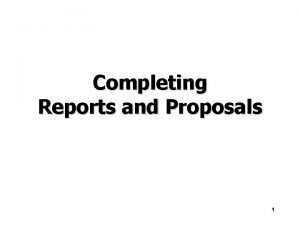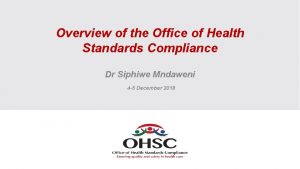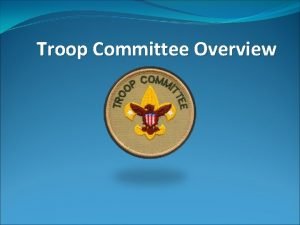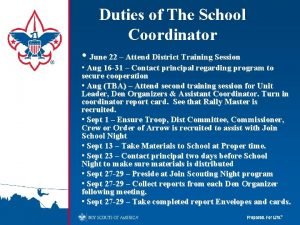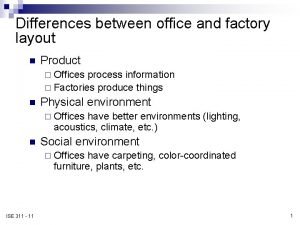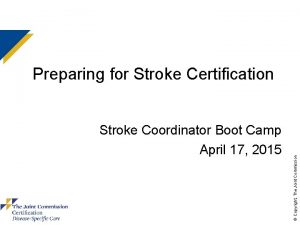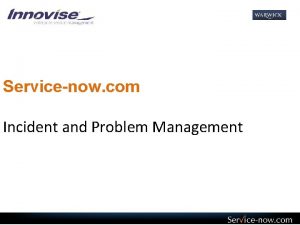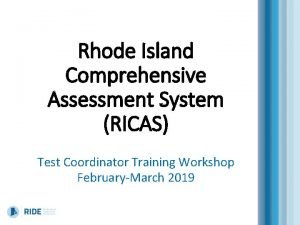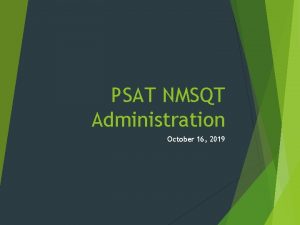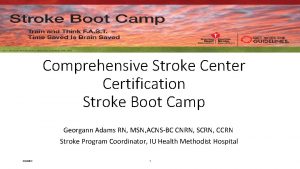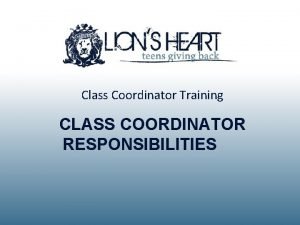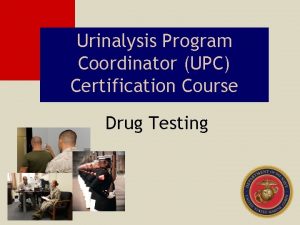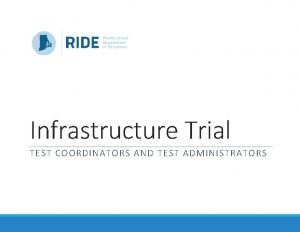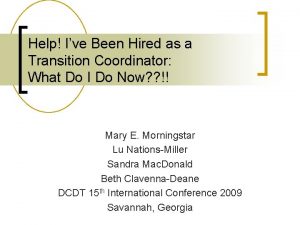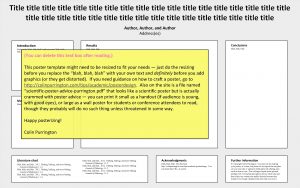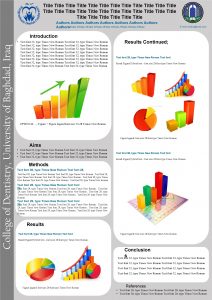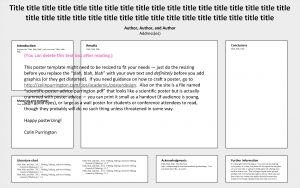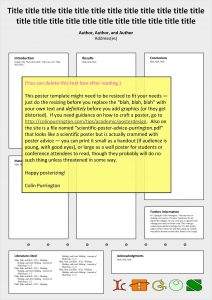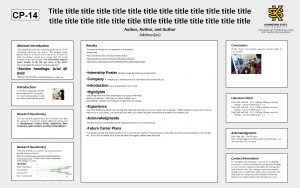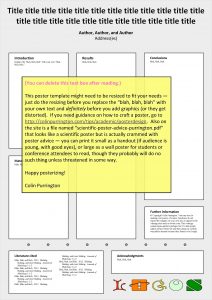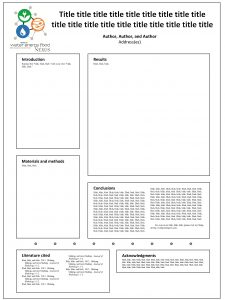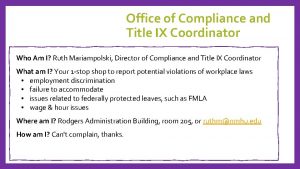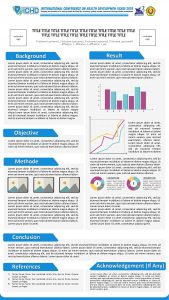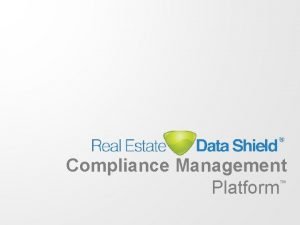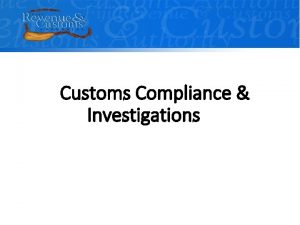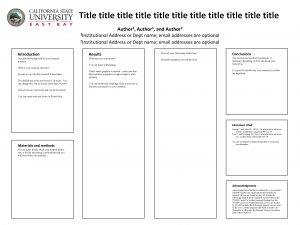Office of Compliance and Title IX Coordinator Who





















- Slides: 21

Office of Compliance and Title IX Coordinator Who Am I? Ruth Mariampolski, Director of Compliance and Title IX Coordinator What am I? Your 1 -stop shop to report potential violations of workplace laws • employment discrimination • failure to accommodate • issues related to federally protected leaves, such as FMLA • wage & hour issues Where am I? Rodgers Administration Building, room 205, or ruthm@nmhu. edu How am I? Can't complain, thanks.

Why Aren't We Having Title IX Training? Don't worry, we will On May 19, 2020, the Department of Education rolled out a series of revisions to the underlying regulations of Title IX. These new regulations, known as the Title IX Final Rule, are to go into effect on August 14, 2020, and effect widespread changes in how allegations of sexual assault and harassment are reported, investigated, and adjudicated within the institution. The regulations are over 2, 000 pages long. Quickly, four Federal lawsuits were filed, all asking the Federal court to "stay, " or pause, implementation of the Final Rule until the lawsuits are resolved (which usually takes several years). The State of New Mexico, together with 17 other states, is a plaintiff in one of these suits. The lawsuits give reasons why the Final Rule should not be implemented, such as: the Department of Education did not follow procedure in passing the Final Rule; that elements of the Final Rule were irrational and did not uphold Congress's goals when it passed Title IX; and that elements of the Final Rule were discriminatory because they treat sexual harassment differently than all other forms of harassment. So far, the Federal Court has neither granted nor rejected any of the petitions. As of today, we do not know if the Title IX Final Rule will be implemented in full, in part, or not at all.

How I learned to stop worrying and love the. . . Interim Guidance For Title IX The Title IX Final Rule changes the rules of Mandatory Reporting but gives institutions discretion to choose their own internal policy for reporting. The Title IX Final Rule narrows the definition of sexual harassment in several key ways, • Limits Title IX investigations to conduct that occurred on US soil, and in a location where NMHU exercises control. • Limits Title IX investigations to conduct that is severe and pervasive. BUT Institutions may investigate, adjudicate, and resolve conduct that the Title IX Final Rule would exclude, as long as the institution treats it as student or employee misconduct. The Title IX Final Rule also permits institutions to select a standard of evidence, as long as there is a policy stating it and the same standard is used for both students and employees. Policy making is a process that requires employee input and presentation to the Board of Regents. Look out for Interim Guidance that will inform you of recommended practices for the above topics during this interim period -- topics for which we plan to develop internal policies using all due procedure. The Interim Guidance will continue the status quo you are familiar with. The Interim Guidance will not be a policy, it is guidance and a recommendation.

Title VII of the Civil Rights Act of 1964 Prohibits Discrimination a materially adverse change in the terms and conditions of employment that occurs because of the employee's protected characteristic.

Terms and Conditions of Employment • • • hiring and firing; compensation, assignment, or classification of employees; transfer, promotion, layoff, or recall; job advertisements; recruitment; testing; use of company facilities; training and apprenticeship programs; fringe benefits; pay, retirement plans, and disability leave; or any other element that was recognized as part of "your job" when you started.

Title VII of the Civil Rights Act of 1964 Prohibits Harassment 1. Quid Pro Quo: An offer in exchange accompanied by a tangible employment action for refusing or submitting. 2. Hostile Work Environment: unwelcome conduct that occurs because of a protected characteristic and. . is so severe or pervasive that the workplace becomes intimidating, hostile, and offensive. Additional HWE definition under the New Mexico Human Rights Act: Or the conduct has the purpose or effect of unreasonably interfering with an employee’s work performance.

Protected Characteristics may be real or perceived Federal Law • • • Race. Color. Religion or creed. National origin or ancestry. Sex • • Pregnancy. Sexual orientation Gender identity W E N Age (40+). Physical or mental disability. Veteran status. Genetic information. Citizenship. + association with one who has a protected characteristic New Mexico Law • • • Race. Color. Religion. National origin. Ancestry. Sex (includes pregnancy). Age (40+). Physical or mental handicap. Spousal affiliation. Sexual orientation. Gender identity. Serious medical condition.

"Hostile Work Environment" is a Legal Term It does not mean an uncivil work environment. It does not mean conduct that is aggravating or unhelpful It does not mean a single instance of discriminatory or offensive speech In the words of the EEOC: "Petty slights, annoyances, and isolated incidents (unless extremely serious) do not rise to the level of illegality. " It also does not mean a work environment that's generically toxic or abusive. As long as the conduct isn't because of a protected characteristic, the conduct does not violate Title VII.

Supervisor Responsibility 1. Don't make employment decisions on the basis of protected characteristics! 2. If you witness or learn of discriminatory conduct affecting you or your subordinates, please report it to the Office of Compliance or to HR. 3. If your subordinate reports discrimination to you, always inform them of their right to make a report to the Office of Compliance or HR. 4. Remember: People don't have to specifically say "discrimination" to complain about discrimination. Listen for the "because of. " • When in doubt, report it to me, I will reach out to the employee and find out their concern directly. • Do not begin an investigation.

Hypothetical Jane Martinez is a professor of Chemistry whose duties include teaching classes, supervising undergraduate Chemistry lab sections, and reviewing the Masters work of two graduate students. When the semester begins, Dr. Martinez is pregnant, but prefers not to tell anyone. Towards the end of the semester her pregnancy becomes obvious. One day, she is chatting with her Chair who says, "congratulations on your pregnancy Jane! Do you know when you're going on maternity leave? " Dr. Martinez says she hasn't decided yet. The Chair replies "Ok! But don't forget to get your FMLA paperwork in! Let me know if I can help. " Before the start of the next semester, Jane reviews her schedule and notices that there are no lab sections on her schedule. She asks the Chair what's up and the Chair replies, "well obviously you can't be in a Chemistry lab since you are pregnant. It would be dangerous and I don't want you or the baby to get hurt. I gave you an extra lecture section of Chem 101 instead. And anyway, you'll be going on leave so what's the difference? " Q: Can an employer refuse to give a pregnant women a job they believe is dangerous to pregnancy? No. United Automobile Workers v. Johnson Controls, Inc. , 499 U. S. 187 (1991)

RETALIATION Don't Do It

Q: What kind of workplace laws have antiretaliation provisions? A: LOTS OF THEM BECAUSE RETALIATION IS NOT OK Title VII of the Civil Rights Act Age Discrimination in Employment Act Americans with Disabilities Act Pregnancy Discrimination Act Title IX of the Education Amendments Act Occupational Safety and Health Act Fair Labor Standards Act Equivalent State-level Laws

Retaliation: an adverse action taken because the employee participated in a protected activity

An employment action is adverse if observing it or experiencing it would discourage a reasonable employee from exercising their rights in the workplace. What's an Adverse Action? • reprimanding an employee or giving a performance evaluation that is lower than it should be; • transferring the employee to a less desirable position against their will; • engaging in verbal or physical abuse or harassment or stalking; • threatening to make, or actually making, reports to authorities (such as reporting immigration status); • increasing scrutiny of an employee's work or singling the employee out for scrutiny; • treating a person family member negatively (for example, cancelling a contract with the person's spouse) legal vocab: an "association claim"; • making the person's work more difficult - for example, by purposefully changing their work schedule to conflict with family responsibilities or moving them to an office that isolated from others they work with.

When the employee does any of the following on a reasonable belief that they are reporting a violation of the law, even if he or she did not use legal terminology 1) Making a Complaint • Filing a formal, internal or external complaint, or filing a lawsuit, that alleges discrimination or the violation of other workplace laws. What are Protected Activities? 2) Participation • Being a witness or providing documents or other physical evidence in a complaint, investigation, or lawsuit alleging violation of workplace laws. • Telling a supervisor or manager about a violation of workplace laws. 3) Opposition • Refusing to follow orders that would result in discrimination. • Resisting sexual advances or intervening to protect others from harassment. • Speaking up in the moment when you witness discrimination. • 4) Exercising Your Rights • Requesting accommodation of a disability or of a religious practice. • Requesting a lactation space. • Asking managers or co-workers about salary information to uncover potentially discriminatory wages.

Not every adverse action is retaliatiory Retaliation occurs when the adverse action was motivated by the protected activity Wait – how do we know? Because of? 1) Time nexus – the adverse action followed the protected activity closely in time. (note: employment actions that precede the protected activity definitionally aren't motivated by the protected activity). 2) Stuff people said – you'd be surprised. 3) Evidence of a change in perception of the complainant – for example, an employee is rated extremely highly for three years, then much lower in the year after the complaint.

MYTH q Retaliation isn't common q Only a supervisor can retaliate Retaliation Myths q If the complaint was dismissed, you aren't retaliating q Just speaking calmly to coworker can't be retaliation REALITY q Retaliation is the most common kind of discrimination case q Any person with knowledge can retaliate q Whether or not the complaint was dismissed is not relevant q If what you say would dissuade a reasonable worker from exercising their own rights, it is retaliation

Hypothetical Sheila White was the only woman working in the Maintenance of Way Department of the Burlington Northern Santa Fe Railroad's Tennessee Yard. She made an internal report that her supervisor was sexual harassing her, and the supervisor was disciplined after an investigation. But White was then moved from duties as a forklift operator to less desirable duties as a track laborer, though her job classification remained the same and both tasks were within her duties. White filed a complaint of discrimination and retaliation with Equal Employment Opportunity Commision. She followed with a second complaint of retaliation, saying she was being excessively scrutinized by her manager. Soon after, she was accused of misconduct and suspended for 37 days without pay. She was cleared of misconduct by an internal review, and reinstated with full back pay.

I Tricked You! This is a Real Case Burlington Northern & Santa Fe Railway Co. v. White (2006) v. This case was heard in the U. S. Supreme Court, and in a unanimous decision they formulated the definition of adverse action you learned today. v. The Supreme Court didn't find it significant that White suffered no monetary loss, was only asked to do work within her job description, and was cleared of misconduct by her employer. v. They focused more on the effect of the conduct on other workers than the effect of the conduct on White. QUIZ What were the protected activities? What were the adverse actions?

• Retaliation most often bubbles up from strong emotions and feelings of unfairness, not from a specific plan of harming another person. Be especially cautious when you know the individuals involved and have heard one or more stories about what happened. • Be conscious of your emotional desire for a specific result. • Remember that there may be more information you are not aware of. • What you read in a newspaper about a legal case is rarely accurate or explained well. Take it with a grain of salt. • Retaliation is Emotional • Treat people who have made a report or complaint the same as people who have not. But Ruth, What About False Complaints? Intentionally false complaints are rare. Most people who complain fully believe that a wrong has been done to them (whether this is objectively true or not).

FINAL THOUGHTS: v. We each have a role in ensuring that every member of the University community feels that they able to report violations of workplace and employment law. v. The University is liable for your conduct when you break the law. A retaliation case can cost hundreds of thousands of dollars. I'm sure you all can think of what you'd rather do with that kind of money. v Actions that are retaliatory are misconduct and can cost your job. v. Be a good steward of our resources and our community by respecting everyone's rights in the workplace. REPORT RETALIATION: Ruthm@nmhu. edu 505 -454 -3363
 West lafayette campus title ix coordinator
West lafayette campus title ix coordinator Lausd local district central
Lausd local district central Title fly and title page
Title fly and title page Office of health standards compliance
Office of health standards compliance Duties and responsibilities of boy scout coordinator
Duties and responsibilities of boy scout coordinator C172 vacuum system
C172 vacuum system School wins coordinator duties and responsibilities
School wins coordinator duties and responsibilities Physical activity and nutrition coordinator
Physical activity and nutrition coordinator Title title
Title title Factory office layout
Factory office layout Stroke coordinator boot camp
Stroke coordinator boot camp Problem management definition
Problem management definition Ricas ride
Ricas ride Psat coordinator manual
Psat coordinator manual Shep coordinator
Shep coordinator Stroke coordinator boot camp
Stroke coordinator boot camp Lcif coordinator
Lcif coordinator Coordinator
Coordinator Fda district recall coordinator
Fda district recall coordinator Iftdtl
Iftdtl Test coordinator
Test coordinator What does a transition coordinator do
What does a transition coordinator do
